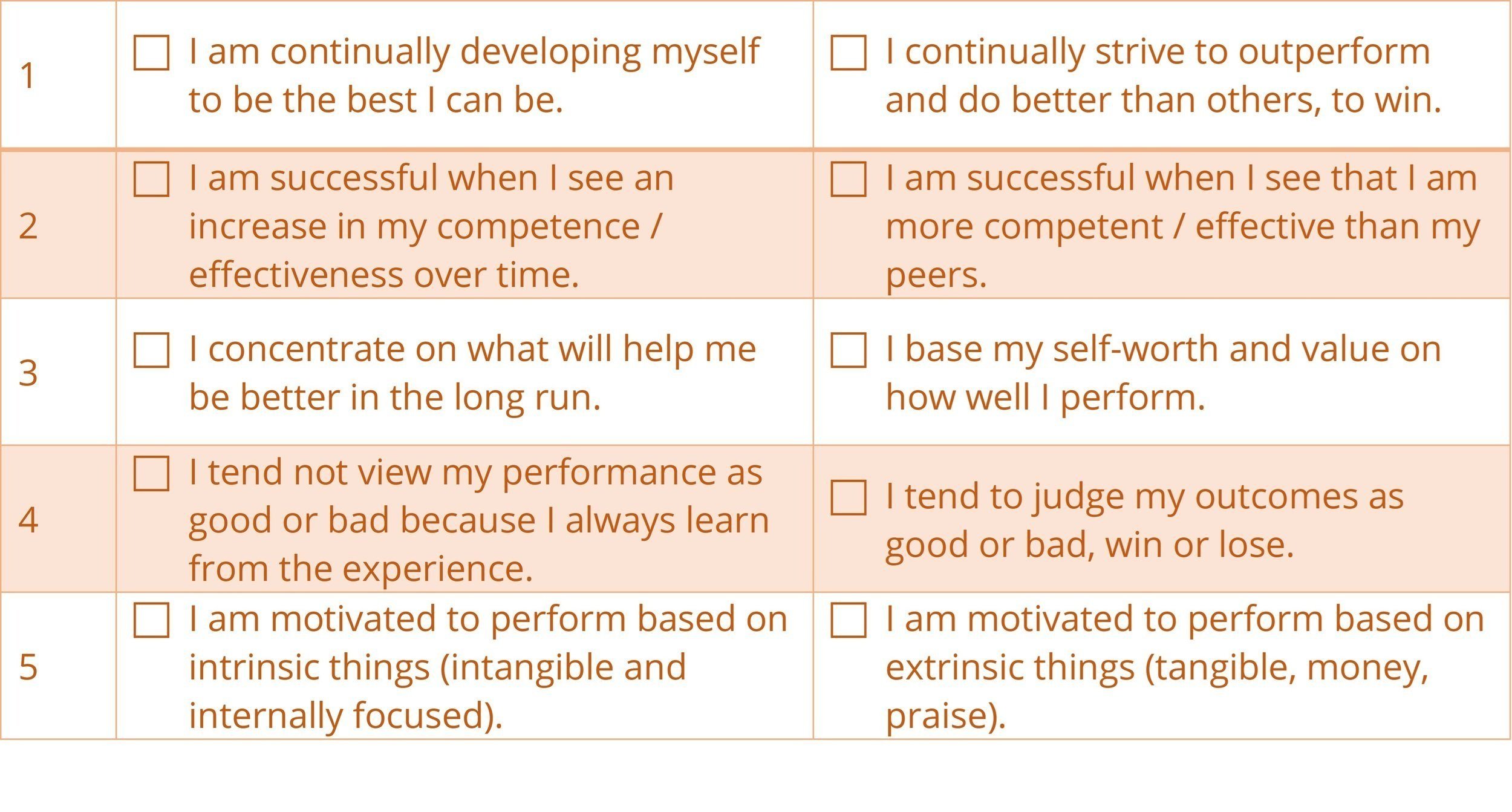Win Some, Learn Some
I had a great coaching session recently with, Bella, a new sales account executive who didn’t meet her quarterly goals. She is new in this position but, has some past sales experience. The product she is selling is complex and she is still learning after six months. At this point Bella is frustrated and putting significant pressure on herself to meet her goal this quarter. She wanted coaching to discuss how she was going to meet her quota, she was determined to hit her numbers and wanted to think through a plan of what she would do each day (i.e. how many calls she would make, number of new connections, etc.) to hit her goal.
How do you go about achieving your goals? Do you have a Performance Orientation or a Mastery Orientation?
Performance Orientation: success is measured as it compares to others - better or worse than others. Performance is related to what has been achieved / accomplished.
In my coaching example above, Bella would focus on her numbers and make sure she is completing all the tasks each day to work toward hitting her goals. She will compare herself to the progress her peers are making to determine how she feels about her progress.
Mastery orientation: success is focused on your growth or improvement overtime, as compared to where you started. Mastery is about what you are learning as opposed to what you achieved.
With this perspective, Bella would focus on becoming more competent on the sales techniques and learning the product. Her progress will be measure on how much she has learned over time and this will determine how she feels about her progress.
If you are not sure of the perspective you generally take, consider the statements in the following table. For each item (1 - 5), select which statement best describes you. Select only 1 item per row. This can be very situational, so think about a specific goal you have pursued in the past.
Your results:
More selections from the first column = Mastery
More selections from the second column = Performance
One of the biggest factors related to goal orientation is how well you are able to respond to performance challenges and competitive stress. Those with a mastery orientation tent to be intrinsically motivated are more resilient when facing performance difficulties, they are more resilient and overall better performers. Those with a performance orientation are susceptible to stress and anxiety when performance suffers, especially when faced with the prospect of loss or failure. Not to say performance orientation is bad, those with a strong drive to achieve and a high level of confidence in a competition will perform very well.
As with most things in life, you are not completely one or the other. You likely shift your orientated situationally. An example of this is an athlete, who is very much mastery focused during training will switch to performance focused when it comes time for the competition.
So, how does this impact Bella, our sales account manager? Having a performance orientation has caused her to put a lot of pressure on herself, resulting in stress and anxiety - this is not serving her well. The stress and anxiety are causing her to not show up with her customers as her best self, impacting her confidence, and ultimately keep her from reaching her full potential. She is new in her role and still has a lot to learn. Shifting to a mastery orientation, keeps her focused on learning the skills she needs to build her confidence and expertise without the added stress of comparing herself to others. With expertise and confidence, meeting her goals will automatically come as a result.
Other Resources
How to Set Goals that are Motivating (Instead of Frustrating)
Should You Even Bother with New Year’s Resolutions this Year?
DiSC® Assessment
Personality and behavior assessments are great ways to gain insight about your personal strengths as well as your derailing behaviors. The DiSC® Assessment can be a great tool to improve teamwork, communication, and productivity in the workplace.
DiSC is an acronym that stands for the four main personality profiles described in the DiSC model: (D)ominance, (i)nfluence, (S)teadiness and (C)onscientiousness.
This assessment can be taken electronically in less than 30 minutes and your results will be provided to you during a 60 minute debrief session.

